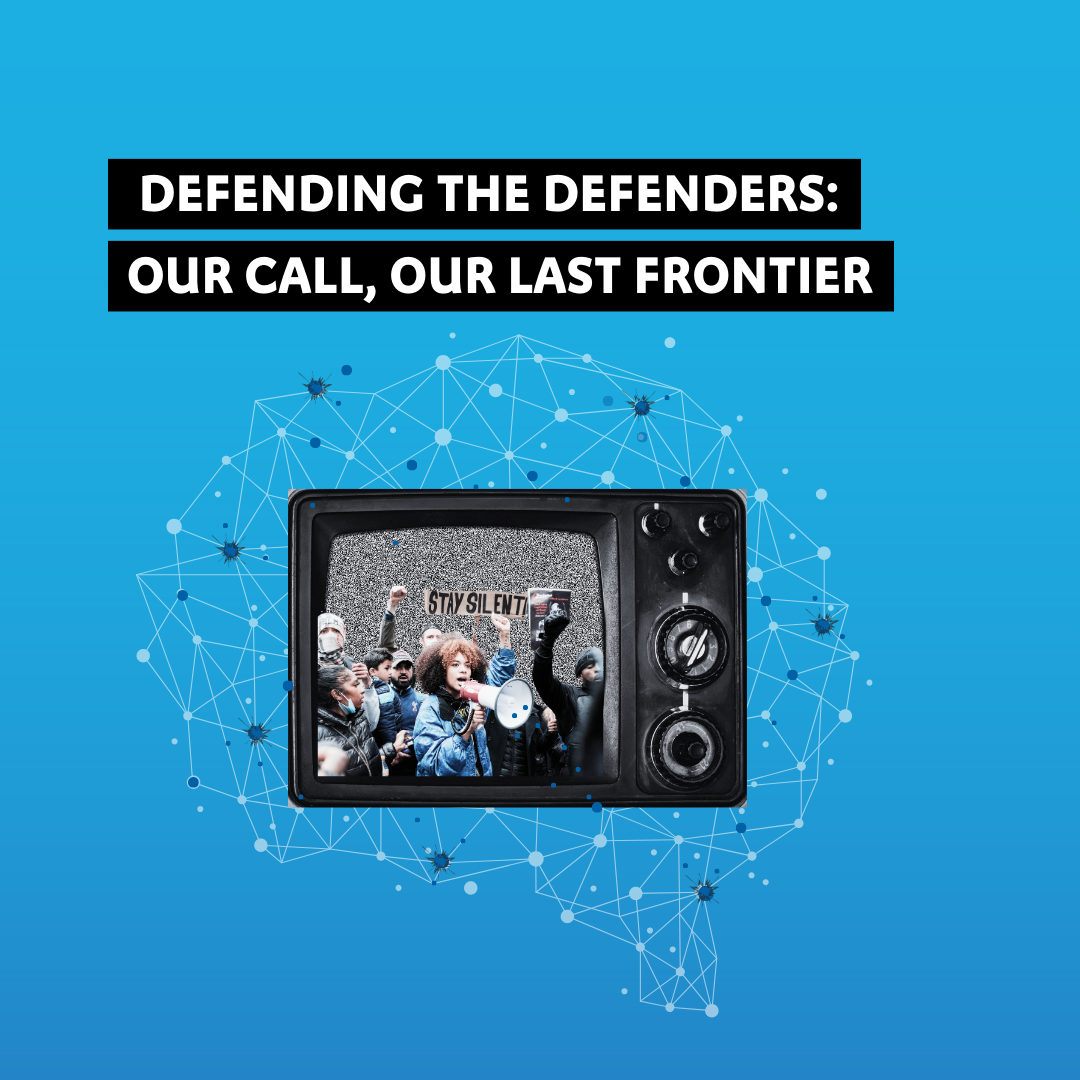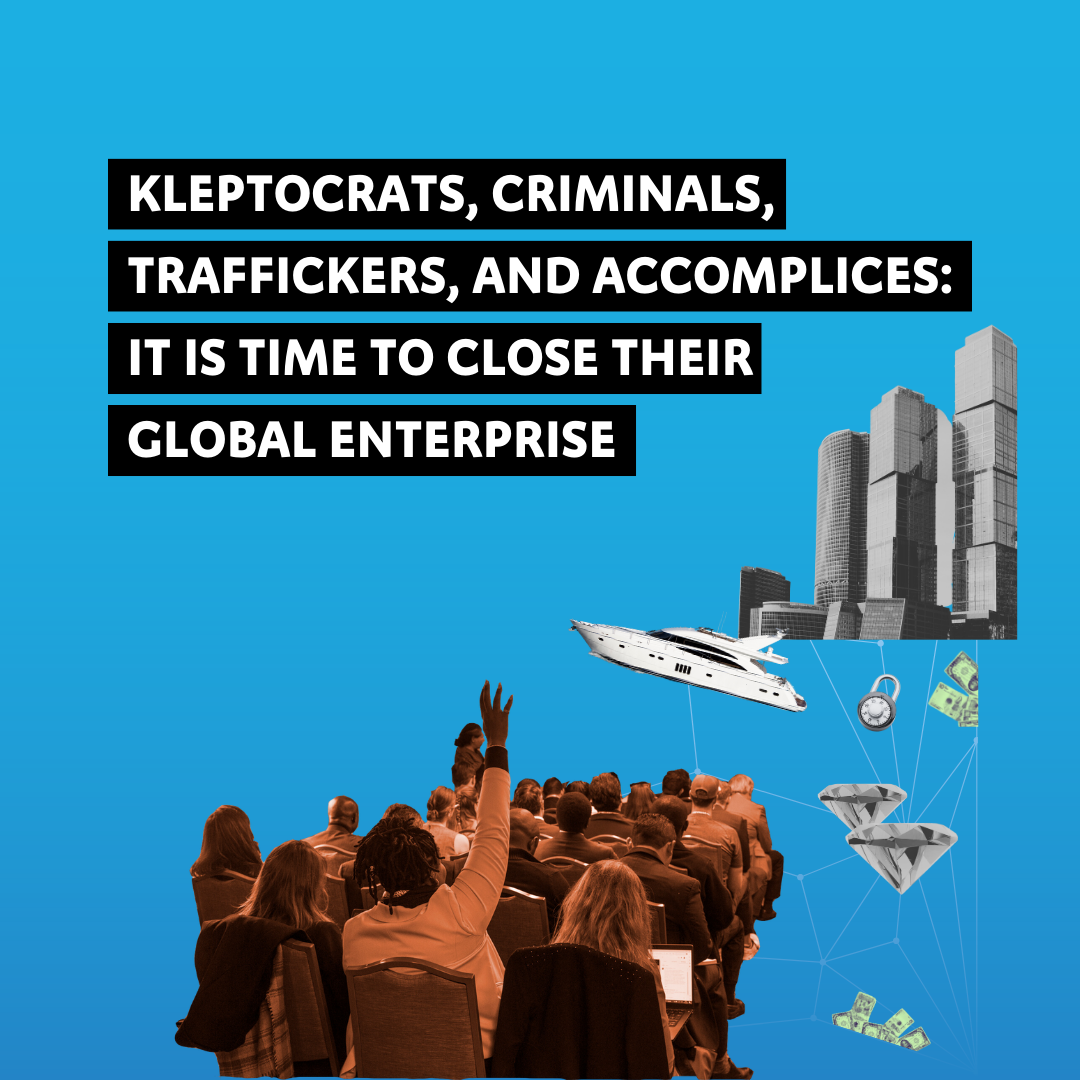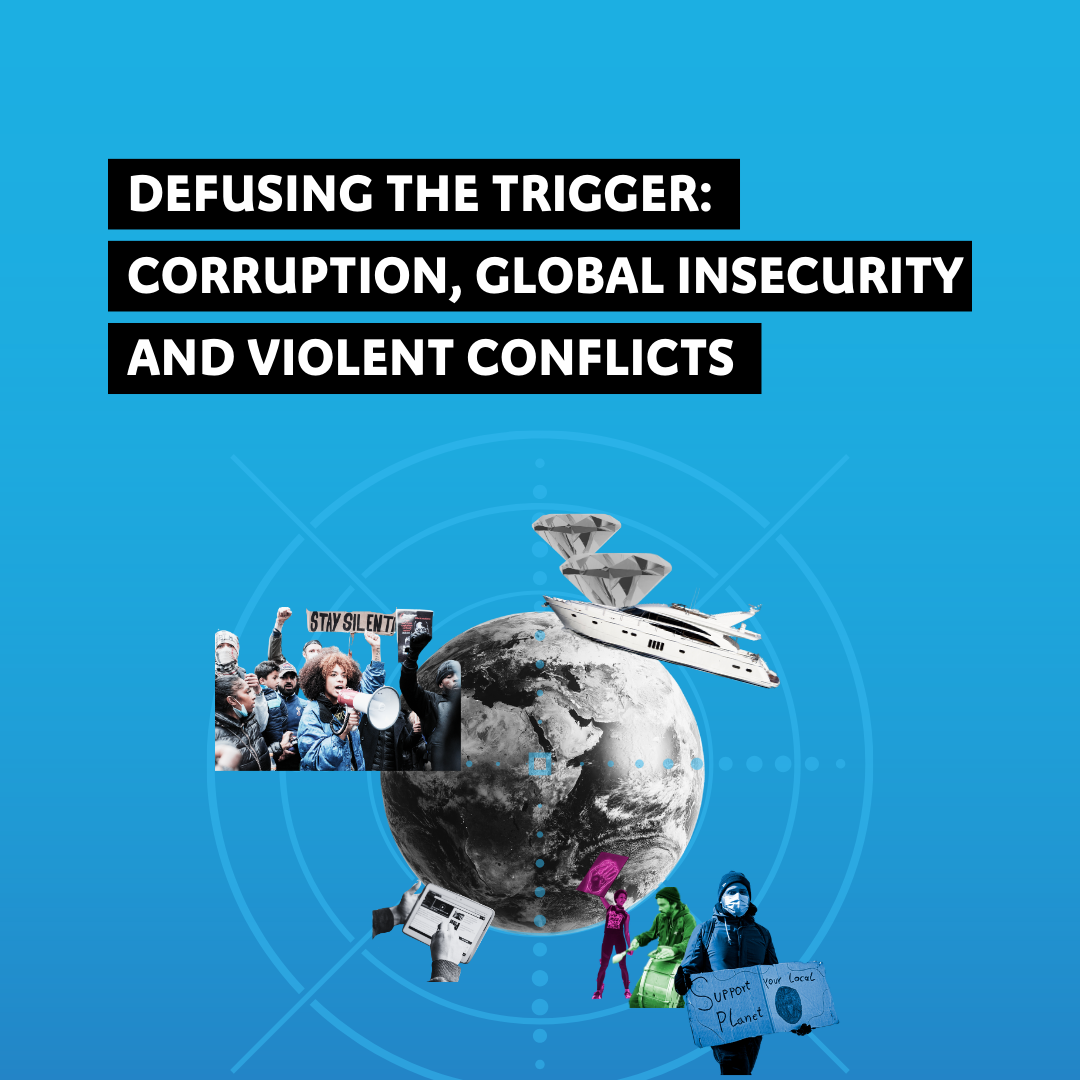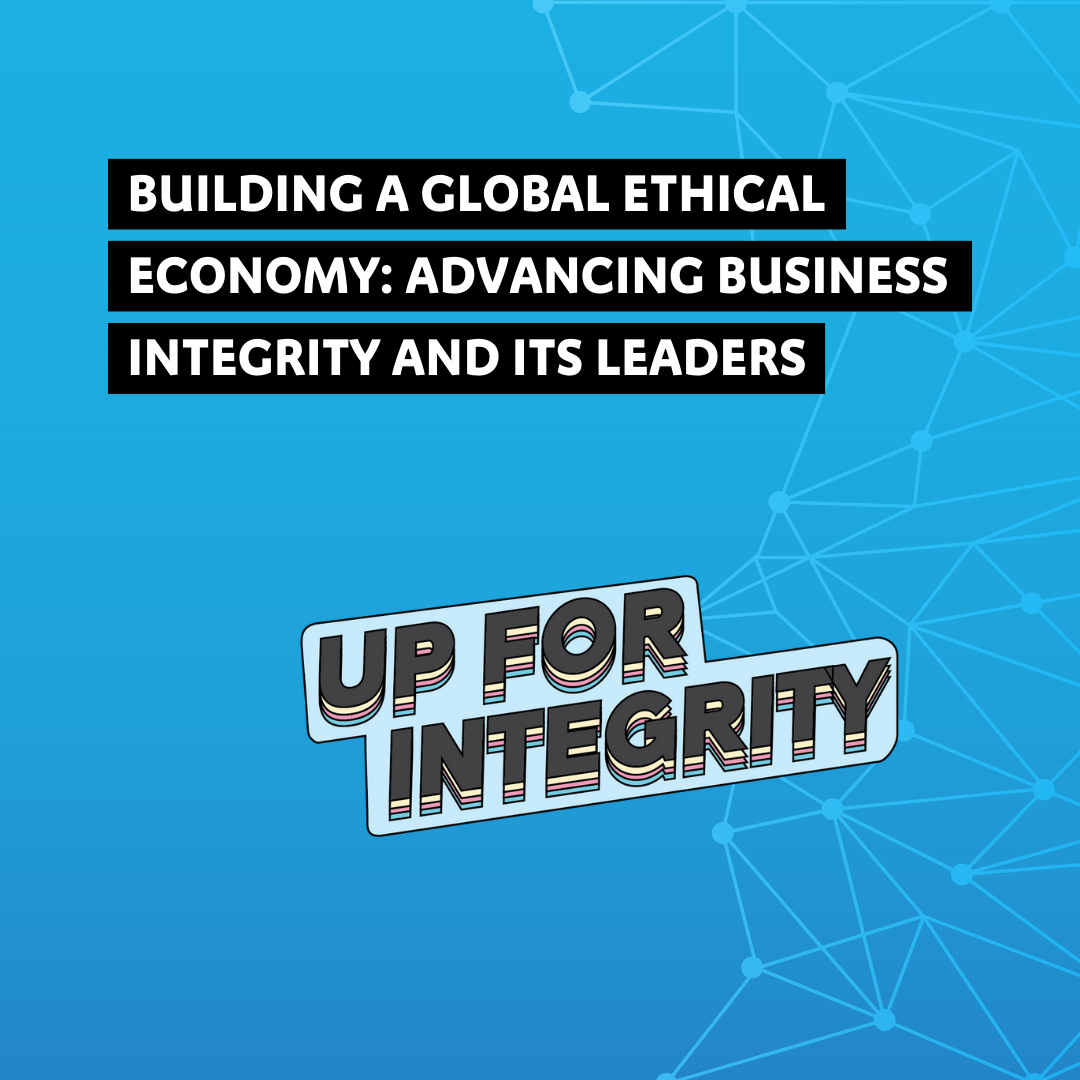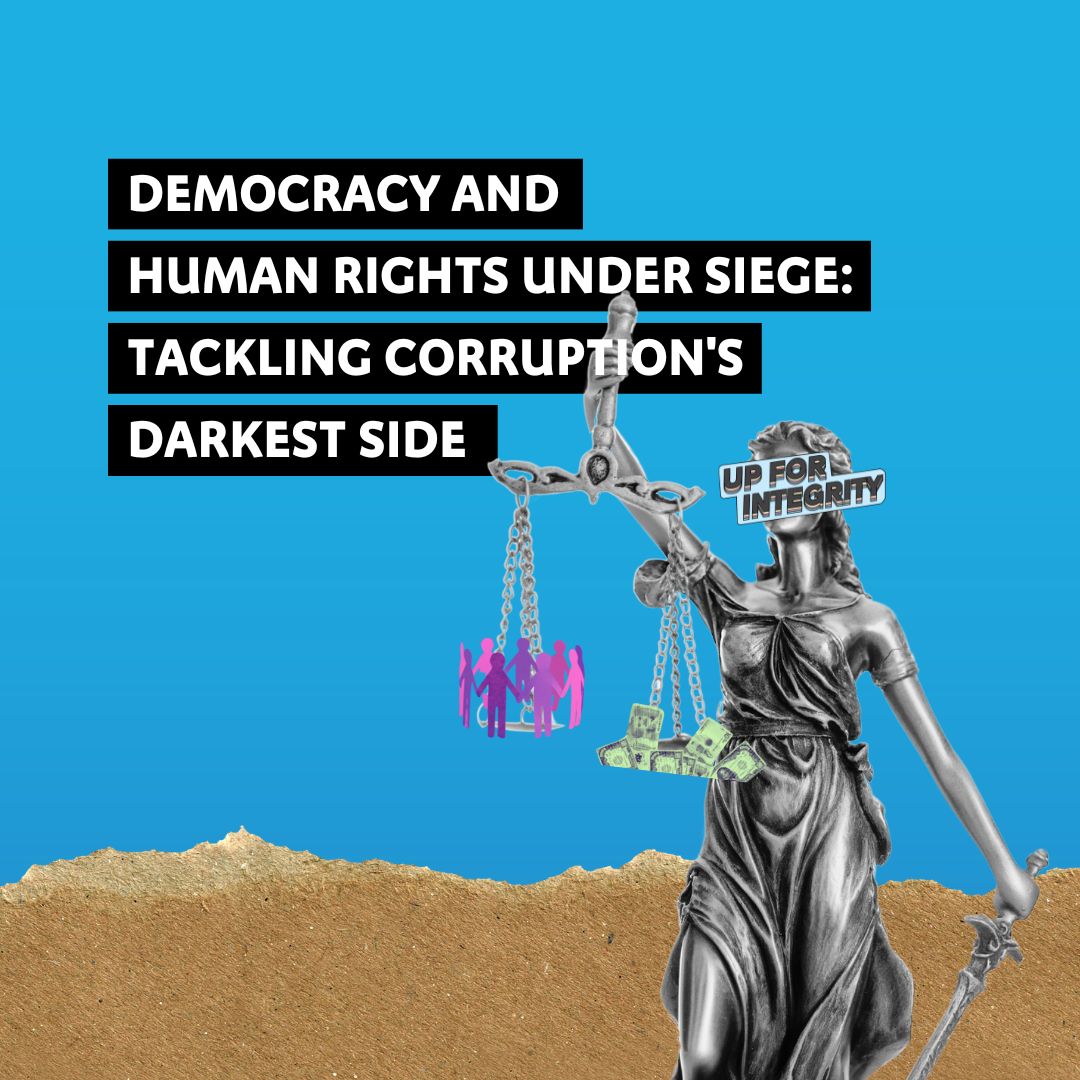View #IACC 2024 Thematic tracks
Greed and Corruption: A Disease Accelerating the Global Environmental Catastrophe

Corruption and greed are at the root of environmental crimes and climate change. The catastrophic weather events of the recent years are a looming warning of what is to come.
From undue influence of the fossil fuel industry over climate policy development to misspending in climate finance projects and from corruption in the management of land to over consumption and waste in developed economies, if greed and corruption are not fought decisively, the environmental catastrophe awaiting us will only grow.
To address this global risk, the 21st IACC invites experts, advocates, and defenders to assess our successes and challenges to date. We aim to outline key areas of action, and advocacy, for the following years for our global movement to take up.
Workshops
-
Anti-Corruption: The New Burden of Proof to Deep Sea Exploitation
In this workshop, we want to delve into the crucial intersection of anti-corruption efforts and global governance, particularly in the realm of deep-sea mining. We’ll navigate the turbulent waters of corruption risks in awarding mining licenses, shining a spotlight on the dangers posed when unethical practices infiltrate this vital industry. Our main objective is to chart a course towards a more transparent and ethical future, by weaving anti-corruption measures into the precautionary principle to illuminate a pathway towards responsible deep-sea mining operations. This isn’t just about compliance; it’s about safeguarding our oceans and fostering a culture of integrity in every activity that affects our environment.
Instituto Tecnológico y de Estudios Superiores de Monterrey (ITESM)
Instituto Tecnológico y de Estudios Superiores de Monterrey (ITESM), Kohn, Kohn & Colapinto, Freshfields Bruckhaus Deringer and Instituto Tecnológico Autónomo de México (ITAM)
-
Safeguarding a Just Energy Transition in The Extractive and Energy Sectors
As the world moves away from fossil fuels, demand for minerals essential for renewable technologies is rising steeply. This session will create awareness of the corruption risks stemming from these changes and their impact on communities. Speakers will focus on innovative approaches to strengthen multi-stakeholder governance, to ensure transparency and accountability for a just energy transition.
Extractive Industries Transparency Initiative (EITI)
Transparency International Australia (TI - Australia), United States Agency for International Development (USAID), Natural Resource Governance Institute (NRGI) and Extractive Industries Transparency Initiative (EITI)
-
Profit over Planet: Harnessing Data to Expose & Halt Big Polluter Influence in Climate Action
From the COP to the hallways of Parliaments, big polluters are derailing advances in climate action. Corporate lobbyists exploit the path towards a sustainable future through their financial arsenal. Evidence of this is key to holding their actions to account. From policy to the impact on society, discover how data empowers citizens to change a system of undue influence that puts profits over the planet.
Influence Map & Transparency International Secretariat (TI-S)
Transparency International Secretariat (TI-S), Transparency International (TI - EU), Influence Map, Transparency International Brazil (TI – Brazil), Greenpeace, Global Witness
-
Corruption in Critical Mineral Supply Chains
Meeting the Paris Agreement climate goals will require quadrupling the minerals currently used by clean energy technologies by 2040. Corruption could undermine the mining and metals sector’s ability to meet this surging demand responsibly. We will discuss the challenges that the government, private sector and CSOs face in seeking to ensure that the energy transition has minimal corruption losses.
Basel Institute on Governance
Organization for Economic Cooperation and Development (OECD), Corruption Eradication Commission, Republic of Indonesia (KPK), and Transparency International
-
All Hot Air? Carbon Markets and their Corruption Risks
Carbon markets have been hailed as a market-oriented solution to mitigate climate change. Their regulatory, pricing, and efficiency challenges have been discussed extensively. In contrast, this workshop will discuss the markets’ diverse integrity challenges and how anti-corruption tools could be applied to safeguard carbon markets from corruption.
United States Agency for International Development (USAID)
Transparency International, World Wide Fund for Nature (WWF), United States Agency for International Development (USAID) and Verra
-
Losing Ground: Grand Corruption in The Land Sector
Land is not immune to grand corruption and elite capture. Corruption in land management contributes to kleptocrat capture of land policies, unfair allocation, and the use of land for political patronage. This workshop will invite diverse land and corruption experts/activists to discuss grand corruption in land grabs and call for a structured policy response in line with a recent UNCAC submission.
Transparency International Secretariat (TI-S)
Transparency International Secretariat (TI-S), Transparency International Indonesia (TI – Indonesia), International Institute for Environment and Development, Basel Institute on Governance
-
From Research to Practice: Cutting-edge Integrity Solutions for The Climate Crisis
Corruption is fuelling the climate crisis by enabling the misuse of natural resources and diminishing the effective deployment of financing for climate goals. By bringing the latest research from a recent Symposium on climate and corruption, the workshop will reinvigorate the fight against corruption by discussing new ideas to forge a creative collective integrity response.
World Bank
Transparency International Secretariat (TI-S), World Bank, Grantham Research Institute for Climate Change and Environment - London School of Economics (LSE), DLA Piper and Green Climate Fund
-
Lives destroyed: How to use Compensation Funds to repair Environmental Crimes
Never has the world faced a reparation of such magnitude for the dam collapse that killed over 190 people in Brazil. Both cases involve accusations of undue political influence, lack of transparency and corruption in policy decisions and the use of compensation funds. How can guidelines for transparency and accountability by multinational companies and governments be established in such complex cases?
Federal University of Ouro Preto
Transparency International Brazil (TI - Brazil), TI Brazil Board, CABF (committee of those affected by the dam collapse in Mariana, Brazil), Transparency International France (TI - France) and Pogust Goodhead
-
Fraud and Corruption in Climate Financing
Urgent action is needed to combat the accelerating climate change challenges. This panel will discuss some new approaches and instruments for climate financing, especially the increased emphasis on private capital mobilization and novel fraud and corruption risks that may arise with it. It will aim to understand emerging challenges and how new partnerships could help combat them.
World Bank
World Bank, Ministry of Foreign Affairs - Pakistan, U.S. Department of Treasury, BlackRock and Extractive Industries Transparency Initiative (EITI)
-
Transnational Corruption: Shedding Light on the Networks that Enable Environmental Crimes
This workshop explores the nexus between transnational corruption, environmental crimes, and other forms of serious organised crime. It aims to raise awareness of this nexus, enhance understanding of law enforcement opportunities, highlight the role of cross-sectoral partnerships, and advance policy recommendations to address the corruption that enables organized environmental crime networks.
Wildlife Justice Commission
Nature Crime Alliance, United Nations Office on Drugs and Crime (UNODC) Corruption and Economic Crime Branch, Wildlife Justice Commission, Financial Accountability and Corporate Transparency (FACT) Coalition and Global Initiative Against Transnational Organized Crime
-
On the (Dirty) Money Trail, Lots of Fallen Trees
While playing a fun and interactive game, you will learn with a team of investigative journalists how to dig deep on the links between environmental destruction and corruption . We will work on real cases of deforestation, timber trafficking, and land grabbing, identifying challenges in obtaining the information. You will get practical tips about data access, finding leaks and whistleblowers, and securing sources.
Journalismfund Europe
Journalismfund Europe, Global Witness Center for Investigative Reporting - BiH and a politics, global trade and environment journalist
-
Machine Learning, Satellites and Journalists Join Forces in The Rainforest
Researchers have long used machine learning to analyse large databases. However, the rapid advance of neural networks has allowed these models, previously restricted to academia and business, to be applied to investigative journalism. This panel will show how data scientists teamed up with investigative journalists to uncover environmental crimes in rainforests across the world.
Pulitzer Center
Pulitzer Center, Earth Genome, Armando Info Venezuela and Global Witness
-
A More Just Energy Transition: Preventing Corruption in Green Mineral Supply Chains
Civil society and private sector experts, including local organizations, at the global frontlines of the just energy transition will share fresh perspectives and innovative approaches to tackling corruption in the global green mineral supply chains. This will advance and inspire creative and collective efforts that build on extensive and well-known work in extractives and anti-corruption.
United States Agency for International Development (USAID)
United States Agency for International Development (USAID) Anti-Corruption Center, Transparency International Australia (TI – Australia), Perekezi and Gov Data Initiative (GDI)
-
Safeguarding Our Planet: Tackling Corruption in Climate Action
Global development organizations have a critical role to play in shaping the response to climate change and in ensuring that corruption doesn’t undermine our collective response to the intertwined challenges of climate adaptation, mitigation and the green transition. This is still an emerging policy area in anticorruption that requires coordinated and targeted responses. This high-level session will build on the momentum of the last year – the World Bank’s AC4D Global Forum, a session at COP28 convened by the IMF and WB, and UNODC’s climate focused sessions at COSP10 to advance the discussion and identify priority areas for action. The session will highlight findings from a joint paper on climate and corruption and emphasize the role of international organizations in this agenda.
World Bank
World Bank, United Nations Office on Drugs and Crime (UNODC), International Monetary Fund (IMF) and United Nations Development Programme (UNDP)
View #IACC 2024 Thematic tracks
- The Theme & Thematic tracks
- All Workshops #IACC2024
- Defending The Defenders: Our Call, Our Last Frontier
- Greed and Corruption: A Disease Accelerating the Global Environmental Catastrophe
- Kleptocrats, Criminals, Traffickers, and Accomplices: It Is Time to Close Their Global Enterprise
- Defusing The Trigger: Corruption, Global Insecurity and Violent Conflicts
- Building a Global Ethical Economy: Advancing Business Integrity and Its Leaders
- The Tech Revolution: Winning a Turbocharged Race
- Democracy and Human Rights Under Siege: Tackling Corruption’s Darkest Side
- Extras
